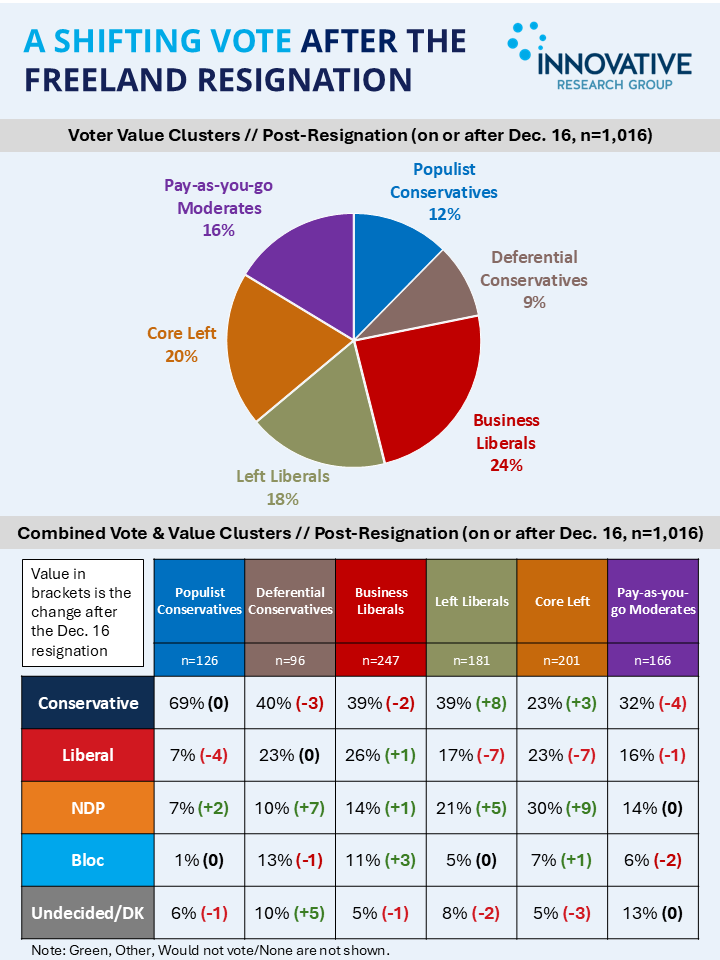

At a hypothetical ballot box, former Deputy Prime Minister and Finance Minister, Chrystia Freeland’s, resignation is very much top-of-mind for Canadians.
These are the findings of an online survey of 2,000 Canadians, conducted by Innovative Research Group (INNOVATIVE) between December 6th and 30th, 2024.
The INNOVATIVE survey asked Canadians how they would vote in a federal election. The data was divided to look at the results pre- (before December 16th) and post- (on or after December 16th) Freeland’s departure from cabinet and an interesting story emerged.
Before Freeland’s resignation, the Liberals held 26% of the popular vote, but after her resignation that figure changed to 22%, which is a large enough difference to be considered statistically significant. So, which party or parties benefitted from this drop in Liberal support? While the Conservatives maintain a substantial lead (42% pre-resignation and 43% post-resignation), it is the NDP which appears to benefit from those who would no longer vote Liberal. Prior to Freeland’s announced departure, the NDP garnered 16% of voter support, which jumped to 19% following her resignation.
Most likely to have changed to an NDP vote are those in the Core Left, and Deferential Conservatives. Many Left Liberals also abandoned ship, but they were slightly more likely to switch to a Conservative rather than NDP vote.
While Canadians may never know the exact details of that final conversation between Justin Trudeau and Chrystia Freeland, it is clear that the resulting resignation hurt the Liberal Party, as evidenced in the vote intent numbers.




































